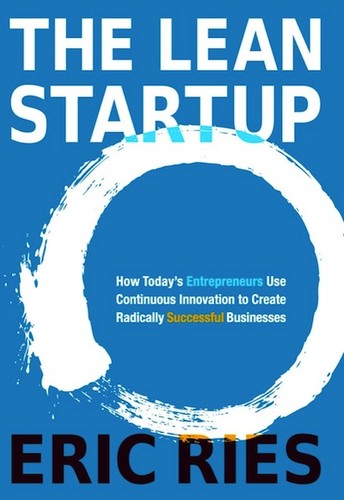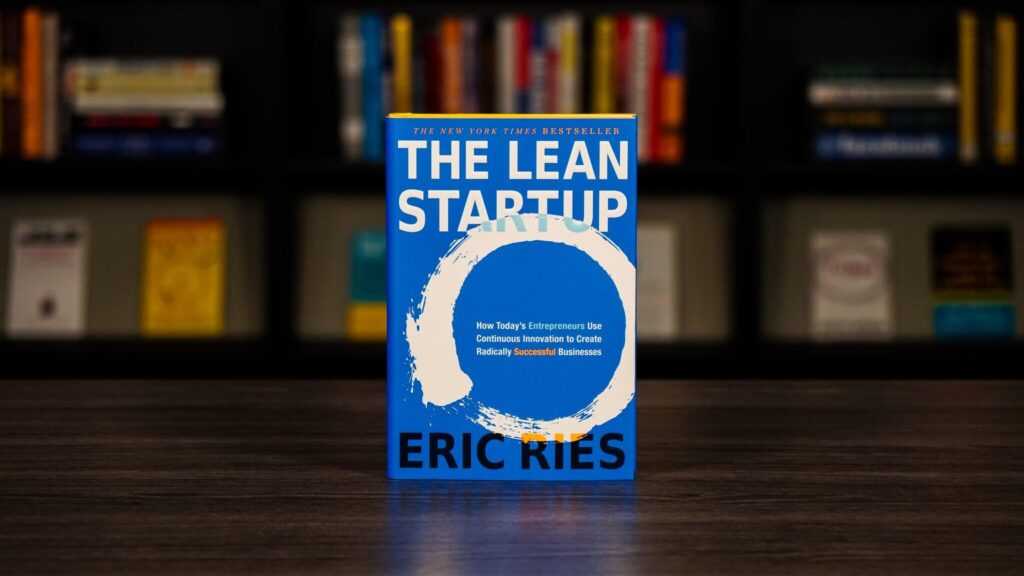
Introduction
The Lean Startup by Eric Ries is a groundbreaking book that provides a systematic approach to startup innovation. It outlines the Lean Startup methodology, which aims to help entrepreneurs build innovative companies that can adapt quickly to market changes, minimizing risks, and maximizing their chances of success. Ries emphasizes the importance of constant learning, experimentation, and iterative development in creating sustainable and scalable businesses.
Key Takeaways
- Innovate through validated learning: The Lean Startup method focuses on gathering data and feedback early on to validate assumptions and avoid wasting resources on unproven ideas.
- Build, measure, learn: Instead of spending months or even years developing a product before testing it in the market, the Lean Startup approach encourages entrepreneurs to build a Minimal Viable Product (MVP) as quickly as possible, measure its performance, and learn from the feedback received.
- Pivot or persevere: The Lean Startup methodology helps entrepreneurs recognize when their initial approach is not working and offers guidance on when to pivot, making a strategic change to explore a new direction, or persevere by doubling down on efforts that show promise.
Key Concepts of The Lean Startup
Eric Ries presents several key concepts in The Lean Startup that form the foundation of his methodology:
- MVP (Minimal Viable Product): The MVP is a version of a product with enough features to gather valuable feedback from early adopters. By launching quickly and learning from user interactions, entrepreneurs can iterate and improve their product based on real-world data.
- Validated Learning: Ries emphasizes the importance of continuously testing assumptions and validating them through experiments. This feedback loop allows entrepreneurs to make informed decisions and refine their ideas based on actual customer insights.
- Continuous Innovation: Traditional business models follow a linear, step-by-step approach. In contrast, the Lean Startup methodology encourages ongoing experimentation, embracing change, and adapting to market feedback.
- Customer Development: Instead of relying solely on the entrepreneur’s vision, the Lean Startup method encourages close interaction with customers. By understanding their needs and pain points, entrepreneurs can create products that address real market demands.
- Agile Development: Ries advocates for agile development practices, which involve short development cycles, frequent releases, and continuous improvement. This iterative approach allows entrepreneurs to respond quickly to changes in the market and continuously refine their products.
Frequently Asked Questions (FAQs)
- How can the Lean Startup methodology benefit entrepreneurs?
- How does the Lean Startup methodology differ from traditional business approaches?
- Can the Lean Startup methodology be applied to any industry?
The Lean Startup methodology provides entrepreneurs with a systematic framework for building innovative and successful companies. It helps them minimize risks by focusing on validated learning, rapid experimentation, and iterative development, allowing entrepreneurs to adapt quickly to market changes and increase their chances of success.
The Lean Startup methodology differs from traditional business approaches in several ways. Unlike traditional models that involve extensive planning before product development, the Lean Startup encourages quick validation through a Minimal Viable Product (MVP) and continuous learning from customer feedback. It embraces agility, adaptability, and a focus on innovation to create sustainable businesses in today’s rapidly changing market.
Yes, the Lean Startup methodology can be applied to any industry. It focuses on the fundamental principles of experimentation, validated learning, and iterative development, which can be leveraged in various sectors. Whether you’re in technology, manufacturing, services, or any other industry, the Lean Startup provides a valuable framework for entrepreneurial success.
Learn More About Training Profits and Creating an Online Course
If you are interested in learning more about training profits, be sure to visit their website for valuable resources. Additionally, if you’re interested in creating an online course to share your expertise, Training Profits offers insights and guidance to get you started. You can also explore their book on selling courses online to further enhance your entrepreneurial skills.



